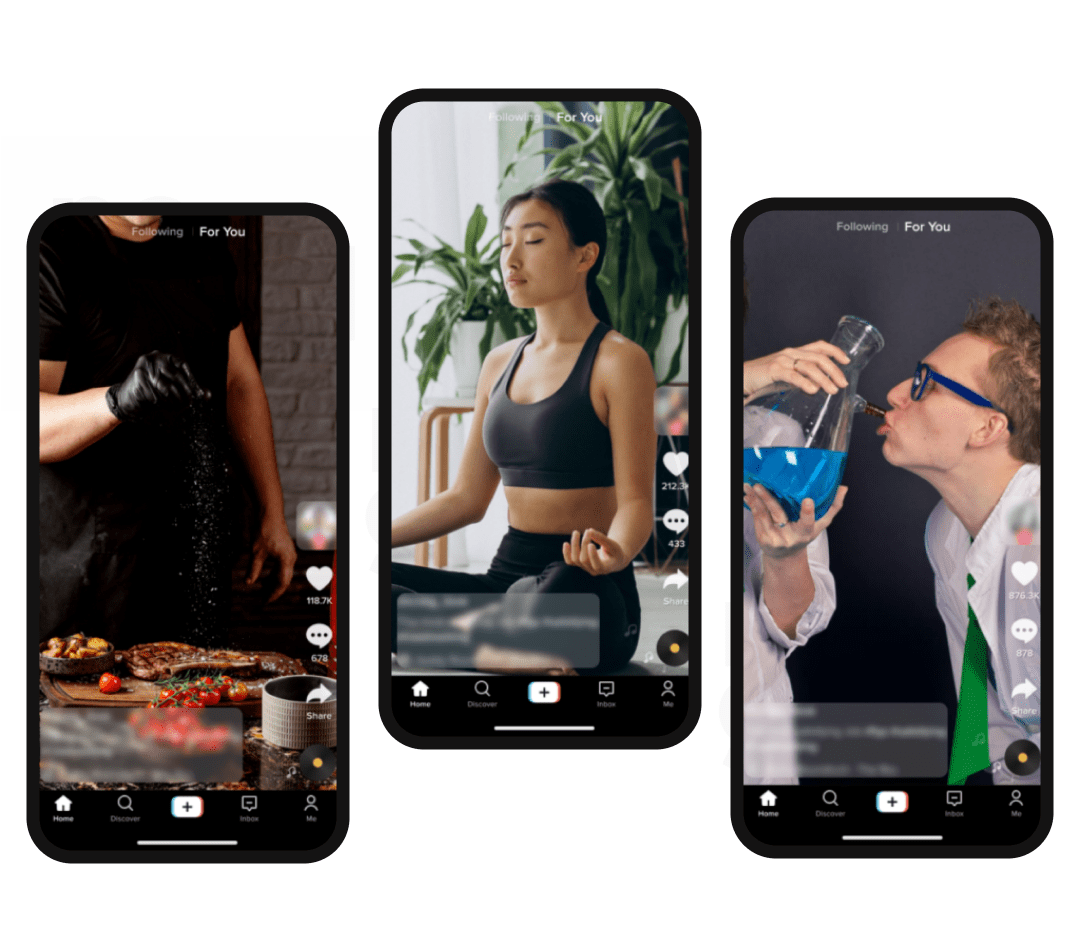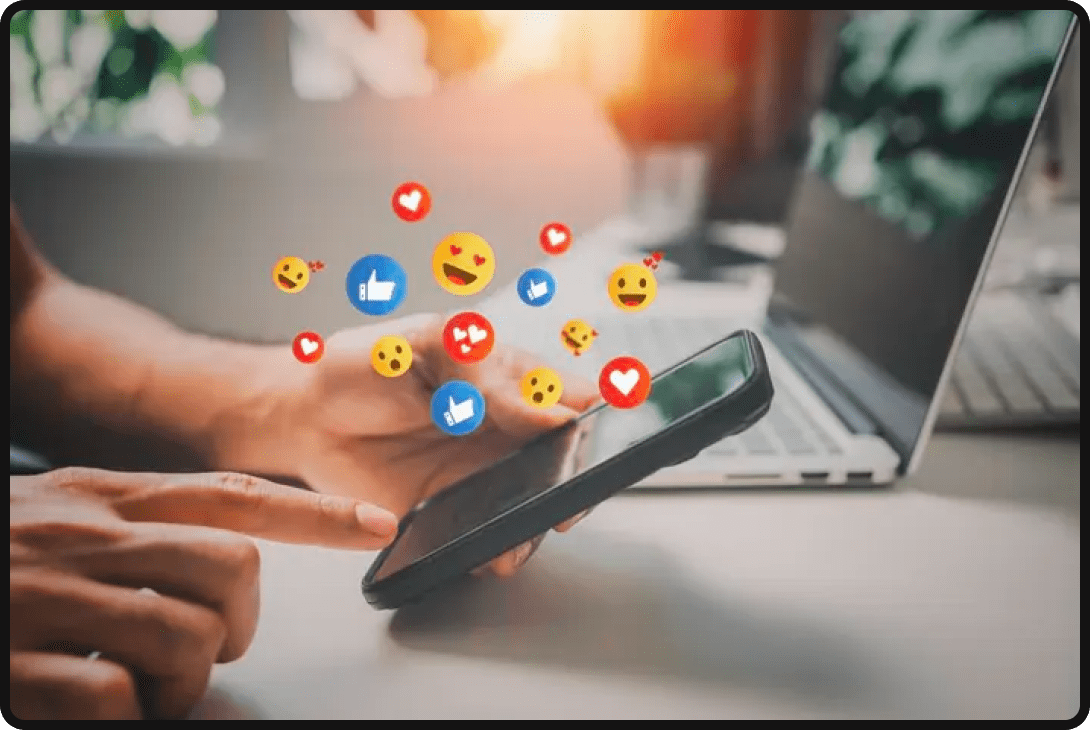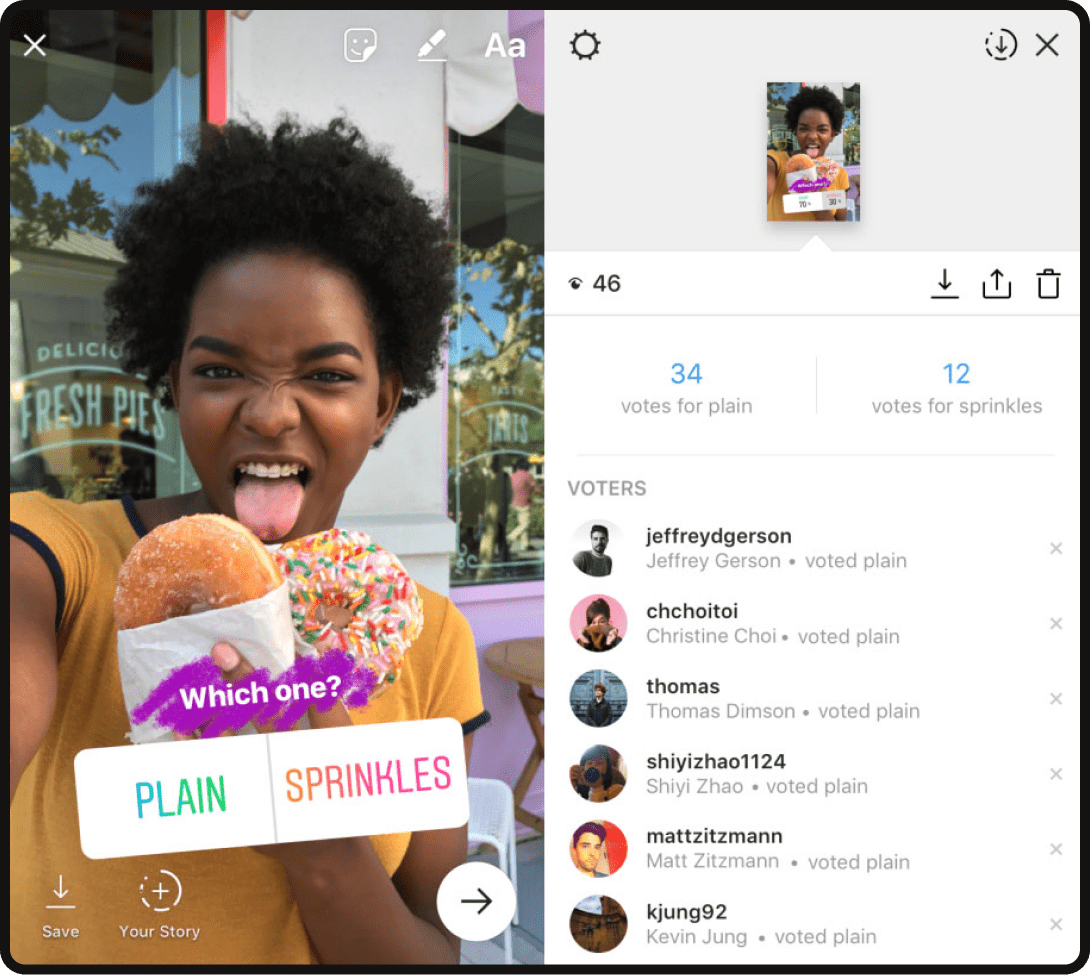B2B marketing is not the same as it was a decade (or even a few years) ago. As the social media landscape evolves, so does the need to adjust strategies B2B companies have been deploying for years. New trends continue to emerge every year with the potential to completely change the way businesses interact with their customers from the ground up. By quickly recognizing and jumping on these trends, B2B brands can reach their target audience, build stronger relationships, and ultimately drive bottom-line impact.
Let’s take a look at several of the biggest social media trends that are expected to drive engagement and growth for B2B businesses in 2024, in addition to providing insights and actionable tips to help you stay ahead of the competition. Staying abreast of these latest shifts in the space is crucial for businesses seeking growth and engagement. As we are well into 2024, here are the key practices that will shape the B2B social media landscape in the next year and arm brands with the tools to succeed.
- Short-Form Video Content Explosion: The rise of platforms like TikTok and Instagram Reels has propelled short-form video content to the forefront of B2B social media. With shrinking attention spans and the need for quick, impactful messaging, B2B businesses must embrace video content to effectively capture and keep their audience’s attention.
- Personalized Experiences: The key to success in B2B social media lies in understanding your audience and tailoring content accordingly. Leveraging data and analytics, B2B businesses can create personalized experiences, delivering targeted messaging and content that resonates with their audience’s needs and interests.
- Employee Advocacy: Employees are your brand’s most authentic ambassadors. Encourage them to share company-related content, insights, and experiences on their social media platforms. This not only amplifies your brand’s reach but also fosters a sense of employee engagement and pride.
- Influencer Marketing: Collaborating with industry influencers can provide B2B businesses with access to a wider audience and increased credibility. By partnering with influencers who align with your brand values and target market, you can effectively tap into their network and gain valuable insights into your industry.
- Social Listening: Stay ahead of the curve by actively watching social media conversations and discussions related to your industry and target audience. This enables you to respond to customer inquiries promptly, address concerns, and participate in relevant discussions, demonstrating your brand’s responsiveness and engagement.
- Live Streaming: Live streaming offers a unique opportunity to connect with your audience in real time. Host webinars, product demonstrations, or Q&A sessions to provide valuable insights, showcase your expertise, and foster direct interactions with potential customers.
- Augmented Reality (AR) and Virtual Reality (VR): AR and VR technologies are revolutionizing the way B2B businesses engage with their customers. Incorporate AR/VR elements into your social media strategy to deliver interactive experiences, product demonstrations, and immersive content that leave a lasting impression.
These seven trends represent a treasure trove of opportunities for B2B businesses to elevate their social media presence, drive engagement, and ultimately achieve their business goals. Now, let’s dive a little deeper into them…
Short-Form Video Content Dominates

Short-form video content is a hot trend in B2B social media, with platforms like TikTok and Instagram Reels seeing massive growth in popularity. This type of content is ideal for capturing the attention of busy B2B buyers, and B2B marketers can use it to showcase their products, services, and company culture in an engaging and visually appealing way.
Videos have a higher engagement rate than any other form of content on social media, and short-form videos are particularly effective because they are easy to digest and share. B2B marketers can use short-form videos to:
- Educate their audience about their products or services
- Share customer testimonials
- Highlight company news and events
- Promote special offers
- And more.
In addition to being a great way to engage with potential customers, short-form videos can also be used to generate leads. By including a call to action in your videos, you can encourage viewers to visit your website, sign up for a free trial, or contact you for more information.
Here are a few tips for creating successful short-form videos for B2B social media:
- Keep your videos short and sweet. The ideal length for a short-form video is between 15 and 60 seconds.
- Use high-quality visuals and audio. Your videos should be visually appealing and easy to understand.
- Focus on your message. Your videos should be clear and concise, and they should focus on one key message.
- Use a call to action. Tell your viewers what you want them to do after watching your video.
- Promote your videos. Share your videos on all of your social media channels, and include them in your email marketing campaigns.
By following these tips, you can create short-form videos that will help you reach your target audience, generate leads, and drive meaningful results.
Influencer Marketing With a B2B Twist
Influencer marketing has traditionally been associated with B2C marketing, but B2B companies are starting to recognize the potential of this strategy to reach a wider audience, build relationships, and generate leads.
B2B influencer marketing involves partnering with individuals or organizations that have a large following and are respected within the industry. These influencers can help to create awareness of your brand, generate interest in your products or services, and drive traffic to your website.
When choosing influencers to partner with, it’s important to consider their relevance to your target audience, their reach, and their engagement rates. You should also make sure that their values and personality align with your brand.
There are many ways to collaborate with influencers, such as:
- Sponsored content: Influencers can create content that features your products or services and share it with their followers.
- Product reviews: Influencers can review your products or services and share their honest opinions with their followers.
- Webinars and events: Influencers can host webinars or events that are sponsored by your company.
- Social media takeovers: Influencers can take over your social media accounts for a day or a week and share their own content.
Influencer marketing can be a powerful tool for B2B companies, but it’s important to do your research and choose the right influencers to partner with. By doing so, you can reach a wider audience, build relationships, and generate leads.
Here are some tips for successful B2B influencer marketing:
- Set clear goals and objectives for your influencer marketing campaign.
- Choose influencers who are relevant to your target audience and have a strong following.
- Make sure that the influencers’ values and personality align with your brand.
- Develop a clear and concise agreement with each influencer.
- Measure the results of your influencer marketing campaign and make adjustments as needed.
Social Listening For Enhanced Customer Engagement

Social listening is a powerful tool in the hands of B2B companies seeking to enhance customer engagement. By actively checking social media platforms and gleaning insights into customer needs, preferences, and challenges, businesses can embark on proactive customer engagement strategies.
This process enables them to identify influential figures and brand loyalists, empowering them to make informed decisions regarding product development, marketing strategies, and customer service enhancements.
One of the key benefits of social listening is the invaluable understanding it provides about the target audience. By meticulously analyzing customer conversations, businesses unravel their customers’ interests, concerns, and obstacles. Armed with this knowledge, they can craft content, products, and services that resonate with their customers on a deeper level.
For instance, if a B2B company observes a recurring theme of discussions about an industry trend, they can capitalize on this opportunity by developing content that directly addresses the trend. This strategic move positions the company as an authority in the industry, fostering trust and credibility among its customers.
Beyond understanding customers, social listening unveils potential influencers and brand advocates. Influencers, with their substantial social media followings, have the power to shape the purchasing decisions of others. Brand advocates, fueled by their passion for a brand, willingly share their positive experiences, acting as organic ambassadors.
By identifying and collaborating with these influential individuals, businesses can exponentially expand their reach and generate a surge of leads. Influencers can effectively promote products or services to their loyal followers, while brand advocates serve as catalysts for positive word-of-mouth, amplifying the brand’s reputation.
Furthermore, social listening serves as a versatile tool for tracking marketing campaign performance and gauging customer satisfaction. By diligently tracking social media mentions of the brand, products, or services, businesses gain real-time insights into customer sentiment and campaign reception.
This feedback loop empowers them to make data-driven adjustments to their marketing strategies and address any customer concerns promptly, fostering an environment of enhanced customer satisfaction.
In essence, social listening empowers B2B companies to elevate customer engagement, delve into the depths of their target audience’s preferences, identify influential allies, assess marketing campaign effectiveness, and cultivate customer satisfaction. By embracing this powerful tool, businesses can efficiently and confidently navigate the ever-evolving landscape of customer interactions.
Account-Based Marketing (ABM) on Social Channels
Account-Based Marketing (ABM) is a targeted marketing strategy that focuses on building deep, personalized relationships with a select group of high-value accounts. Social media provides an excellent platform for ABM as it allows businesses to connect with and engage with their target accounts in a meaningful way.
There are several benefits to using social media for ABM. First, social media allows businesses to reach their target accounts directly. Second, social media provides a wealth of data and insights about target accounts, which can be used to create personalized content and campaigns. Third, social media allows businesses to build relationships with target accounts over time, which can lead to increased brand loyalty and sales.
To create successful ABM campaigns on social media, businesses should first identify their target accounts. Once target accounts have been identified, businesses can create personalized content and campaigns that appeal to their specific interests and needs. Personalized content can include things like tailored blog posts, infographics, videos, and social media posts.
In addition to creating personalized content, businesses should also engage with their target accounts on social media. This can be done by liking and commenting on their posts, sharing their content, and responding to their questions and comments. By engaging with target accounts, businesses can build relationships and trust, which can lead to increased sales.
Finally, businesses should measure the success of their ABM campaigns on social media. This can be done by tracking metrics such as reach, engagement, and conversions. By tracking these metrics, businesses can see what is working and what is not, and make adjustments to their campaigns accordingly.
Interactive And Engaging Content Formats

Interactive and engaging content formats are essential for capturing the attention of B2B buyers and driving engagement on social media. These formats can help to educate, entertain, and inspire your audience, while also providing valuable insights into their needs and interests.
Some popular interactive and engaging content formats for B2B social media include:
Interactive polls, quizzes, and surveys allow you to gather feedback from your audience and get them involved in your content. This can be a great way to generate leads, conduct market research, and build relationships with your customers.
Augmented reality (AR) and virtual reality (VR) can be used to create immersive experiences that allow your audience to interact with your products and services in a realistic way. This can be a great way to showcase your products and services and to provide your audience with a memorable experience. Especially with the introduction of the Apple Vision Pro, getting ahead of the game with experiences designed for the early and future adopters of the headset will be a strong move.
Gamification elements can be used to add an element of fun and competition to your social media content. This can help to keep your audience engaged and coming back for more.
Live Q&A sessions, webinars, and virtual events are a great way to connect with your audience in real time and answer their questions. This can help to build trust and credibility with your audience and to position your business as a thought leader in your industry.
Interactive infographics, animated videos, and other visually appealing formats can help capture the attention of your audience and make your content more memorable. This can be a great way to share complex information clearly and concisely.
By using these interactive and engaging content formats, B2B businesses can drive engagement and growth on social media. These formats can help to educate, entertain, and inspire your audience, while also providing valuable insights into their needs and interests.
Emphasis on Original and Authentic Content
In the ever-evolving landscape of B2B social media, it’s no longer enough to simply curate and share content from other sources. To truly stand out and engage your target audience, it’s essential to prioritize the creation of original and authentic content that resonates with your brand’s values and messaging.
One of the key benefits of original content is that it allows you to establish your brand as a thought leader in your industry. By sharing unique insights, perspectives, and expertise, you can position your business as a trusted resource and attract potential customers who are seeking valuable information. Original content also enables you to showcase your brand’s personality and culture, creating a deeper connection with your audience and fostering a sense of community.
Authenticity is equally important in building trust and credibility with your B2B audience. Avoid creating content that feels overly promotional or sales-driven. Instead, focus on providing genuine value to your followers by sharing behind-the-scenes glimpses of your company, employee spotlights, customer success stories, and industry-related news and updates. Transparency and honesty are essential in building long-lasting relationships with your customers.
User-generated content (UGC) is another powerful way to leverage the authenticity of your customers and create a sense of community. Encourage your customers to share their experiences with your products or services, whether through social media posts, reviews, or testimonials. Featuring UGC on your social channels not only adds variety and authenticity to your content mix but also serves as social proof, building trust and credibility among potential customers.
Employee Advocacy Programs
This is a great way to boost brand awareness, generate leads, and build relationships with customers. By encouraging employees to share company-related content on their personal social media accounts, businesses can tap into a wider audience and create a more authentic and credible online presence.
To create an effective employee advocacy program, it’s important to first identify talented creators within your organization. These are employees who are passionate about the company and its products or services, and who have a strong social media presence.
Once you’ve identified these employees, provide them with training and resources to help them create high-quality, engaging content. This could include tips on writing effective social media posts, creating visually appealing graphics, and using social media analytics to track their progress.
It’s also important to acknowledge and reward employees for their contributions to the program. This could be done through public recognition, such as shout-outs in company newsletters or on social media, or through more tangible rewards, such as gift cards or bonuses.
By implementing an effective employee advocacy program, businesses can leverage the power of their employees’ social networks to reach a wider audience, build relationships with customers, and ultimately drive business growth.
Leveraging AI for Personalized Customer Experiences
AI (Artificial Intelligence) has emerged as a powerful tool for businesses seeking to deliver personalized customer experiences. In the realm of B2B social media, AI can play a pivotal role in enhancing customer engagement and driving business growth.
One of the key ways AI can be leveraged is through AI-powered analytics. By analyzing vast amounts of customer data, businesses can gain deep insights into customer preferences, behaviors, and pain points. This knowledge empowers businesses to tailor their social media content, interactions, and offerings to meet the specific needs and interests of their target audience.
Chatbots and virtual assistants are other AI applications that can significantly improve customer experiences. These automated tools can provide real-time assistance, answer customer queries, and guide customers through various processes, offering a seamless and efficient experience.
By incorporating chatbots and virtual assistants into social media platforms, businesses can make sure that customers receive prompt and personalized support, enhancing overall satisfaction and loyalty.
Personalizing social media content and ads is another effective way to leverage AI for customer engagement. By using AI algorithms, businesses can analyze customer data and preferences to deliver highly relevant and targeted content. This approach increases the likelihood of capturing customer attention, generating leads, and driving conversions.
Finally, AI-generated recommendations can further enhance customer experiences by suggesting relevant products, services, or content based on individual preferences. This level of personalization demonstrates a deep understanding of customer needs and interests, fostering a sense of value and connection with the brand.
Leveraging AI for personalized customer experiences is a crucial strategy for B2B businesses seeking to thrive in the competitive social media landscape. By harnessing the power of AI-powered analytics, chatbots, personalized content, and recommendations, businesses can create deeper connections with customers, drive engagement, and ultimately achieve sustainable growth.
Conclusion
Needless to say, the B2B social media landscape is in a perpetual state of flux, which means brands need to remain vigilant and adaptable to the ever-shifting trends. By incorporating these emerging trends into your B2B social media strategy, you position your business for success, driving engagement, fostering growth, and ultimately achieving your overarching business objectives.
Embrace innovation, think a few steps ahead (and outside of the box), and leverage the power of social media to connect with your target audience, build meaningful relationships, and drive business growth.






